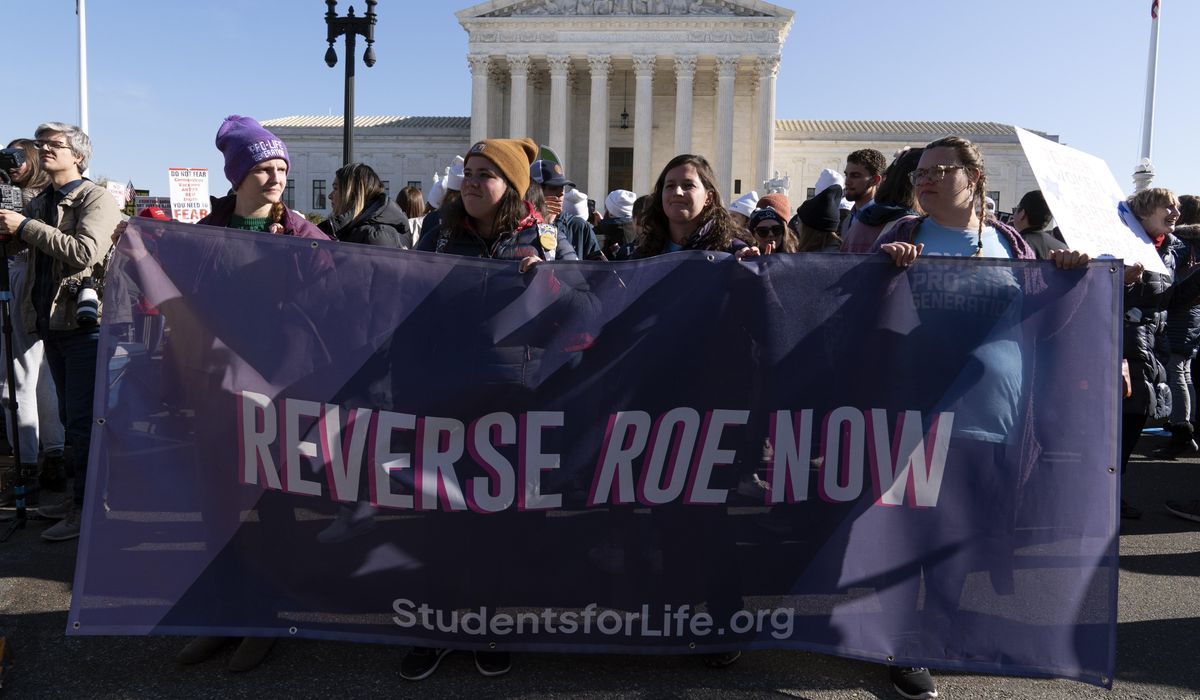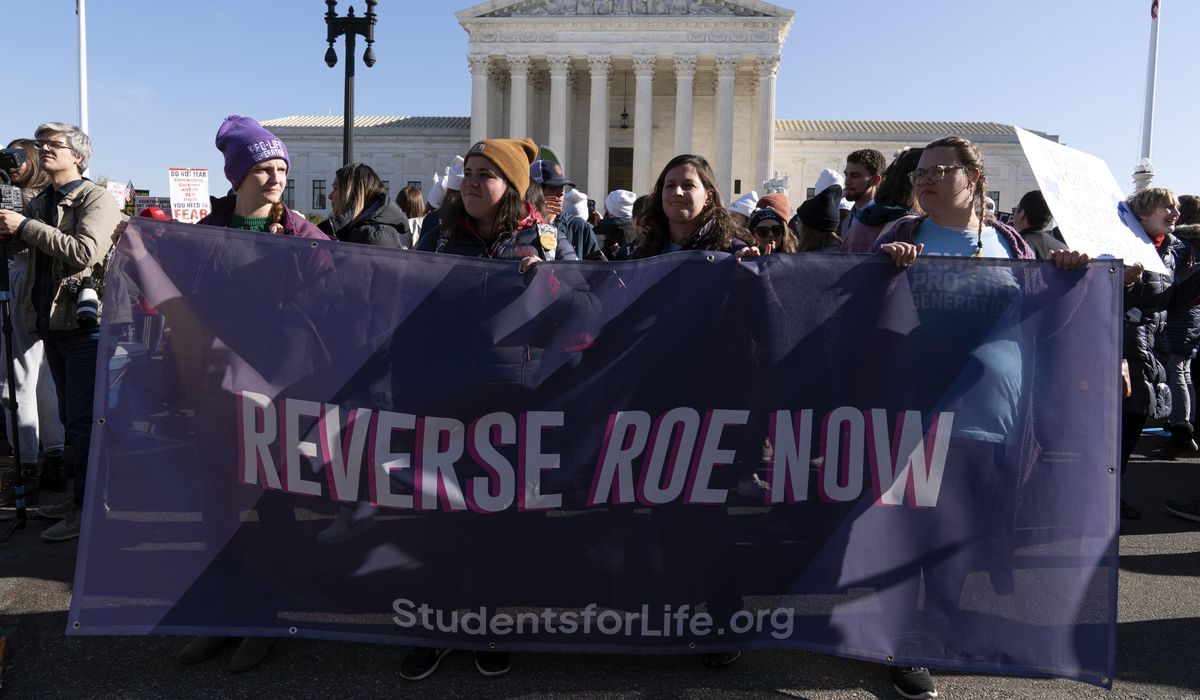
The fabric of Angela Minter’s life is inextricably woven with abortion. She said she was born in Detroit after surviving a botched procedure, then underwent two abortions in her teens before giving birth to three children.
Now the president of Sisters for Life, Ms. Minter appeared Wednesday with other pro-life leaders ahead of the 49th annual March for Life to condemn abortion’s disparate impact on Black women, who account for more than one-third of all U.S. procedures even though they make up 15% of the childbearing population.
“Washington, D.C.: 55% of the abortions obtained are Black women. In Michigan, 50%. In Alabama, 62%. In my state, Kentucky, that number is roughly the same,” Ms. Minter said at a press conference. “How would you know that, Angela? Because I do sidewalk counseling there at the Planned Parenthood there, the Planned Parenthood that told me where to go to get my abortion.”
She cited figures from a report released Wednesday by the Center for Urban Renewal and Education (CURE), “The Impact of Abortion in the Black Community,” which found that, “Disproportionately, the leading consumer of abortion services is the African-American female.”
In 2018, 33.6% of all U.S. abortions were obtained by non-Hispanic Black women. In 2019, that figure rose to 38.6%, ahead of non-Hispanic White women, who accounted for 33.4%, according to Centers for Disease Control and Prevention figures from 30 states and jurisdictions that reported race by ethnicity data.
Pro-life advocates blame the disparity in large part on what they describe as the abortion industry’s targeting of minority communities by locating clinics in Black neighborhoods and using “cultural icons to sell its message to the Black community,” the report said.
“The prevalence of abortion facilities within and near minority communities serves as a major contributor to the rate at which Black women obtain abortions,” the report said. “Accordingly, Black women are significantly more likely to have an abortion than White women.”
Said Star Parker, CURE founder and president: “Planned Parenthood and other abortion providers have done irreparable damage to the Black community.”
“While Planned Parenthood tried to distance itself from their racist founder, Margaret Sanger, who called Black babies ‘human weeds,’ the goal of the organization remains the same: 79% of their clinics are in minority neighborhoods,” she said.
Planned Parenthood, the nation’s largest abortion provider, argues that it offers a range of health services to underserved and rural communities, saying that 35% of its patients are “people of color”; 75% fall below the poverty line, and for many people, “Planned Parenthood is their only source of care.”
Planned Parenthood has undertaken a reckoning over its association with Sanger, removing her name in 2020 from its Manhattan facility, but “changing your name does not change your DNA,” said Radiance Foundation co-founder Ryan Bomberger.
“We live in a society where systemic racism is blamed for every negative racial disparity, yet pro-abortion activists pretend that racism doesn’t exist in the one industry that has killed millions of Black lives for a living,” he said.
Ms. Minter stressed the importance of reaching out to Black pastors and other community leaders with information about pro-life alternatives and resources.
“We’re educating our community,” she said. “They’re going to have the same revelation I had. Because I went into a Planned Parenthood. I bought the lie. I drunk the Kool-Aid, and I thought that Planned Parenthood was a help. But what I needed was a pastor to tell me, let me educate you about what’s happening.”
“Impact of Abortion on the Black Community” report just released https://t.co/xaFmMngS2R. Devastating analysis of abortion industry’s targeting of minorities. Joined by @ryanbomberger @marjoriesba @LCActionJonA @angelaminterky @CarrolNecho and Pastor Nate Thomas.
— Star Parker (@StarParker) January 19, 2022
The March for Life, whose 2022 theme is “Equality Begins in the Womb,” is scheduled for Friday.
Ms. Minter said she would be participating, even though she has a broken foot.
“Someone said, ‘Are you going to march?’ Oh, yeah, I’m going to the march. ‘Are you going to stay at the hotel?’ Oh, no, I’m marching,” she said. “I’m marching for life.”








